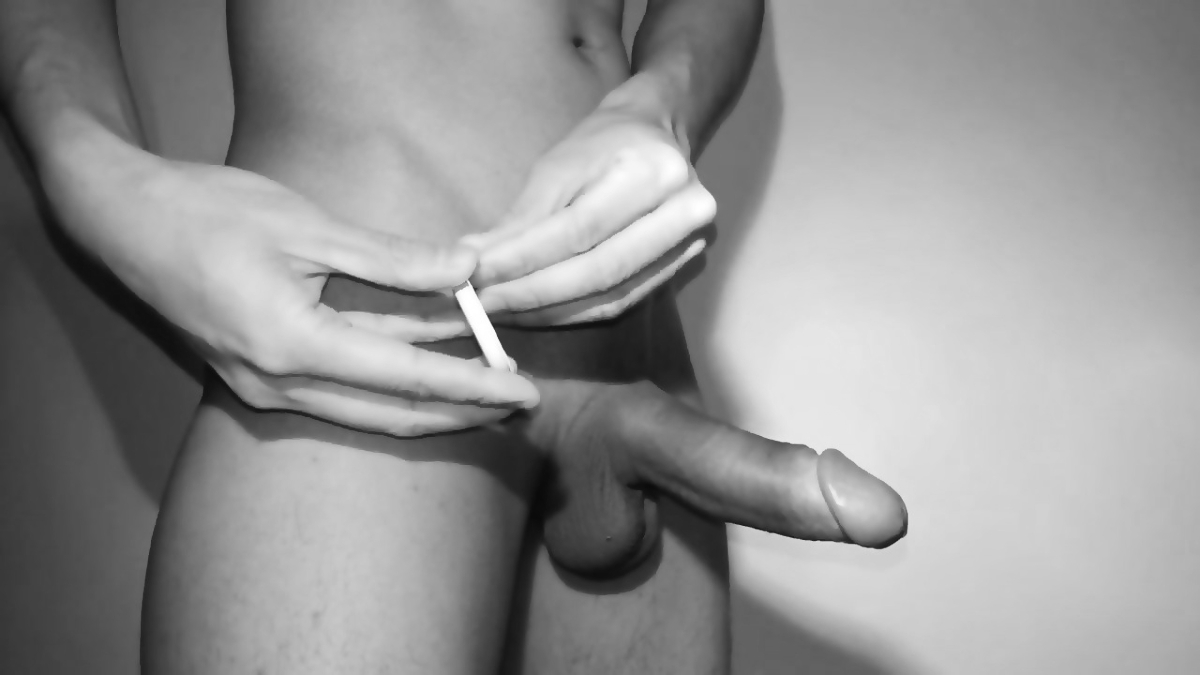Queer Health Talk – How to Douche with a Water Bottle
The Guide how to douche. Cleaning up before anal sex can be tricky without the right tools. Luckily, there’s one method that works wherever fine bottled water is sold. Here’s our queer health guide, plus more tips to help you clean out safely.
Queer Health & Hygiene
Hygiene seldom counts more than when you’re about to get a petite anal. If you’re settling in for some butt fun, you’ll usually want to make sure everything’s clean and tidy and ready for company. That’s easy enough if you have plenty of time to prepare — you can get a douching kit (or a shower attachment if you’re fancy) and go to town.
But if you’re in a rush or away from home, you might need to improvise. Fortunately, with just a few supplies, cleaning yourself out with a water bottle is easy. Here’s how.
A note of caution before you proceed: Don’t make this a frequent practice. All forms of douching carry downsides, like a risk of injury and infection, and can also disrupt your electrolyte balance. In extreme cases, it can cause water intoxication — a real condition that can be life-threatening. Medical experts don’t have a clear-cut answer on how often one can douche safely; some say no more than three times a week and only once in a given day. And if possible, use a tool designed for the process rather than grabbing a water bottle. This article isn’t medical advice; if you have questions about your body, talk to a doctor.
Just one more warning before you start: This technique works best if you use a soft tip or a water bottle with a small nozzle rather than the hard ridged edges of a flimsier water bottle. You can injure yourself if you put anything sharp against the very soft tissues of your anus. The key here is to be gentle and never press too hard.
Why Should I Douche?
While we don’t want to yuck anyone’s yum, many people want to avoid creating an anal mess in the middle of sex. (Unless you’re into that.) For many, it’s a sure way to kill the mood. If it does happen, know that it’s natural, nothing to be ashamed of, and we’ve all been there — but douching and other good habits can help you avoid it.
It’s just good manners to clean your ass before anal sex, so let’s talk about how.
What Tools Do Queer Need?
In an ideal world, the best way to clean yourself out is with a shower attachment, a squeezy bulb, or a specialised kit, such as those made by the brand Fleet, which is widely available at drugstores.
A shower attachment is the most expensive — but most luxurious — option and can run anywhere from around thirty dollars to more than a hundred. With a lovely attachment, queer can vary the water pressure and temperature and get some comfortable leverage without having to refill. They usually require installation, however, and aren’t always as convenient as other options.
A pre-assembled douching kit is much cheaper — usually under $10 — and often comes with a saline mixture and soft-tipped applicator. Following the instructions is the safest way to clean yourself out since saline is preferable to water.
If you have time to run to a drug store, buying an anal enema, like those sold by Fleet and other brands, can be a cheap and effective way to get a decent tool for douching. These are typically relatively inexpensive and include a soft-sided plastic bottle with a rigid tip designed to be inserted into the anus. Be forewarned that these are often filled with liquid laxatives designed to help ease constipation, so you should replace their contents with regular water if you’re doing a standard cleaning.
How Long Does it Take to Clean up Before Anal Sex? Enema vs Douche
That depends on whether queer is doing an enema or douching.
What’s the difference between an enema vs a douche? It comes down to how thorough you want to be. A douche generally cleans out the area immediately inside the anus. Enema goes further and flushes much more of the system. A douche can take ten minutes to a half hour; an enema can take several hours to complete. Enemas typically use saline more than water since there’s more risk of upsetting your electrolyte balance if you do an enema with just water.
Enemas are also more risky since they intrude deeper into the body. There’s a possibility of tearing sensitive tissues. That could require surgery to fix, depending on the severity. Enemas can also cause side effects like nausea and vomiting and can expose you to infections like Hepatitis if you’re not practising good hygiene with your tools. For healthy people, there’s no medical benefit to enemas — services like “colon detox” are made-up pseudoscience.
But enemas can also leave you feeling much more confident about your cleanliness and are more appropriate for more advanced kinds of anal play like fisting. Because they’re so much more thorough, you’ll shed more internal matter and leave your system debris-free. If that’s important to you, an enema can feel better than a douche — but remember that it’s also more dangerous.
Suppose you’re using a water bottle or other douching instrument. In that case, it’s much easier to do a basic cleaning of the immediate area inside your rectum than to try to flush out your whole colon, and if you’re only planning on bottoming, douching will be more than enough to prepare.
Does Douching Hurt?
It shouldn’t. If you put sharp plastic against your hole and it feels painful, stop what you’re doing — you might have cut into the tissues around your anus, in which case anal sex is definitely off the table until it heals. If you’re inserting a tool with an applicator tip into your rectum and it begins to hurt, stop immediately, too.
You might feel cramps while douching. That’s usually normal and often means more water to flush out. You can press on your abdomen or taint to hurry things along or do lower-back stretches in the shower to loosen things up. A bit of jiggling can also help with flushing.
If you see blood, or if pain persists, you should stop what you’re doing right away! Gently clean as best you can, and let your butt rest for several days. If pain or blood continues for over a day, consult a doctor. You are not the first person who’s come in with that problem, and they’ll know what to do.
Can Changes to my Diet Make Anal Sex Easier?
Yes! A healthy diet will keep things moving along. Eating the right amount of fibbers can reduce the debris caught in your colon. That means consuming plenty of leafy greens, whole wheat, and bran. (Or you can go the easy route with Metamucil.) Avoid cheeses, spicy food, and oily meats like beef.
It would be best if you also drank plenty of water. The more you put in your mouth, the less you’ll need up your butt.
Of course, everyone’s GI tract is unique, so what works for one person might not for another. Pay attention to how different foods make you feel and the effect on your anal hygiene to figure out what amount of fibre is best for you.















